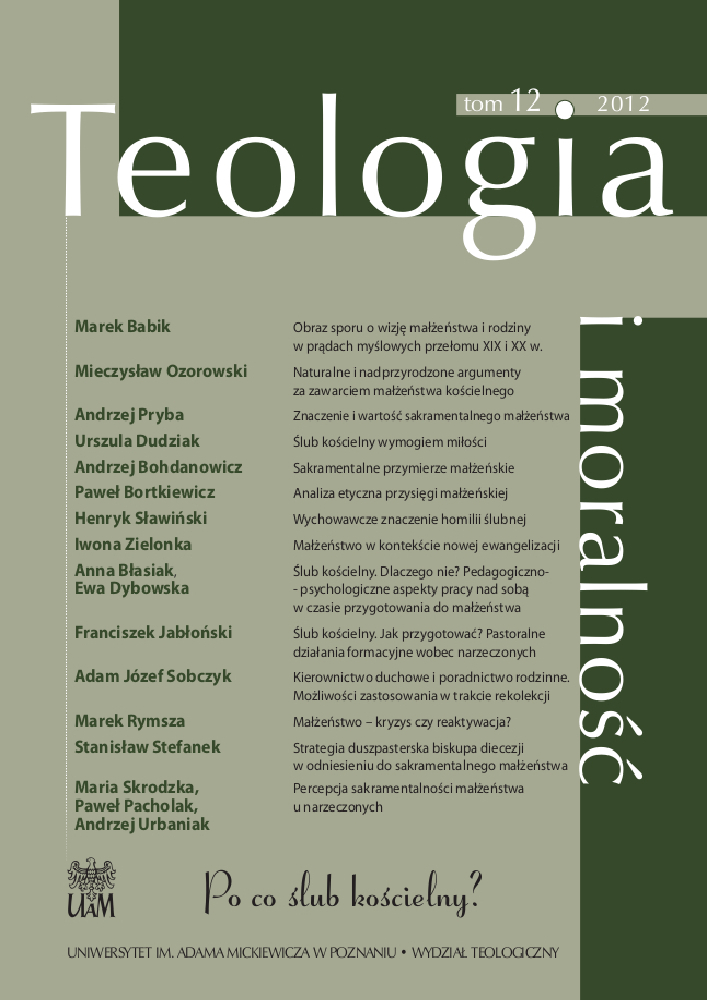Abstract
Contemporary change of customs and ensuing conceptual chaos are to an extent the results of theories created in anthropology and philosophy. Under their influence many young people get the impression that happiness can be achieved not only by repeated change of partners but also of one’s sex, so by absolute freedom. This is accompanied by the phenomenon of cohabitation and other forms of setting up quasi-family homes. In this situation it is the task of the Church to seek a new language, new possibilities of communicating especially with people affected by various revolutions. That is why the Church has recently created the Vatican Council for the New Evangelization and invited everyone to join in this new undertaking. Moreover, Benedict XVI proclaimed the Year of the Faith. Changes pertain also to the form of preparing young people to the sacrament of matrimony. From pastoral practice it follows that there is a need to rethink the topics of the premarital courses and often even to replace them with individual preparation of the young people to the sacrament of matrimony. This would enable the Church to reach out to people who are religiously indifferent.References
Babik M., Obraz sporu o wizję małżeństwa i rodziny oraz o kształt wychowania prorodzinnego w głównych prądach myślowych przełomu XIX i XX wieku, „Teologia i Moralność” 12 (2012).
Lubowicki K., Duchowość małżeńska w nauczaniu Jana Pawła II, Kraków 2005.
Suaudeau J., Dla rodziny wyzwolić siły dobra, Warszawa 2012.
License
All rights reserved
